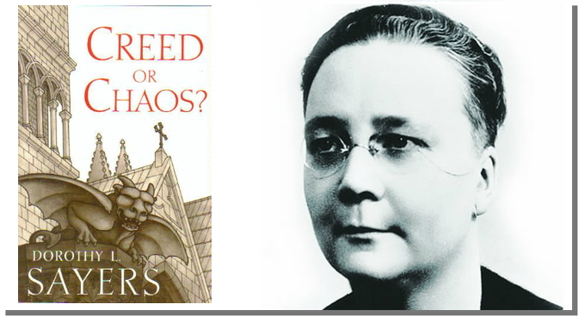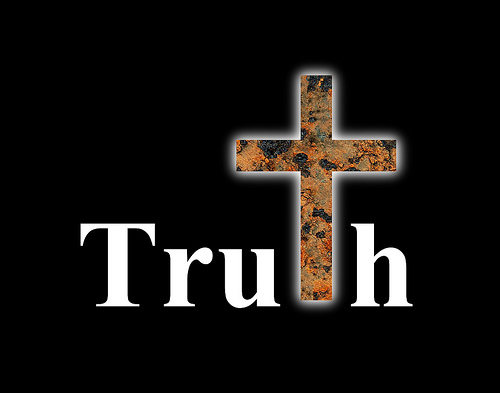Evangelical Christians in America today say they are concerned about morality, yet how well do they understand the basis for morality? We have “progressive” Christians who decry poverty but don’t have strong convictions about the evil of abortion, and many are now advocating homosexual relationships because “all love is love,” or some other banal statement.
I sometimes wonder what Christians in earlier eras would think of us now. How amazed would they be at this devolution/watering down of basic Biblical teaching? If C. S. Lewis or Dorothy Sayers, for instance, could somehow be transported from the heavenly realm and be forced to live in our time, what would they say (besides, “Hey, why did you take me from eternal bliss and make me come back to the world of sinful messes)?
Well, I believe that, even though their era didn’t see abortion as a “right” and same-sex relationships as an accepted lifestyle (they knew those existed, but they were not accepted by the broader society), they saw the foundational cracks in the Church that would lead to the destruction of the entire edifice.
Take Dorothy Sayers, for instance. She is famous for stressing the need to grasp basic Biblical truths, particularly in an essay (made into a small book) she wrote called Creed or Chaos?

“It is worse than useless for Christians to talk about the importance of Christian morality,” she instructed, “unless they are prepared to take their stand upon the fundamentals of Christian theology. It is a lie to say that dogma does not matter; it matters enormously.”
We are a “Christian” people who are more focused on feelings than thinking. We want to feel God’s presence—which is certainly a worthy desire—but we don’t want to be bothered with having to explain what we are feeling and why. Sayers cautions, “It is fatal to let people suppose that Christianity is only a mode of feeling; it is vitally necessary to insist that it is first and foremost a rational explanation of the universe.”
Christians ought to be top-notch thinkers. They should be able to offer the world that “rational explanation of the universe” that Sayers mentioned.
Another modern approach is to see Christian faith as primarily a feel-good religion. One doesn’t have to go all the way to the extremes of a prosperity gospel (which is not the gospel at all) to fall into this trap. God becomes our therapist who helps us cope with life and tells us that all will be well—just think positive thoughts and don’t allow negativity in your life. Sayers would have none of that:
It is hopeless to offer Christianity as a vaguely idealistic aspiration of a simple and consoling kind; it is, on the contrary, a hard, tough, exacting, and complex doctrine, steeped in a drastic and uncompromising realism.
Then she hits at the ignorance overall of her own people of Britain, an ignorance that carries over, sadly enough, to our day and place:
And it is fatal to imagine that everybody knows quite well what Christianity is and needs only a little encouragement to practice it. The brutal fact is that in this Christian country not one person in a hundred has the faintest notion what the Church teaches about God or man or society or the person of Jesus Christ.
Sayers then divides her society into groups that should be recognizable to us in 2019 America:
Apart from a possible one percent of intelligent and instructed Christians, there are three kinds of people we have to deal with.
There are the frank and open heathen, whose notions of Christianity are a dreadful jumble of rags and tags of Bible anecdotes and clotted mythological nonsense.
There are the ignorant Christians, who combine a mild, gentle-Jesus sentimentality with vaguely humanistic ethics. . . .
Finally, there are the more-or-less instructed churchgoers, who know all the arguments about divorce and auricular confession and communion in two kinds, but are about as well equipped to do battle on fundamentals against a Marxian atheist or a Wellsian agnostic as a boy with a peashooter facing a fan-fire of machine guns.
I see all three types, but the last two are the saddest spectacle of all. Just think about all those who name the name of Christ who are jumping on board the Marxist train currently, usually without knowing just whose train they are riding on. A distinct, Biblical worldview is becoming a rarity.

Sayers wasn’t too optimistic about 1940s Britain, as she saw it sinking spiritually. She also clearly discerned that what happens to a people theologically will filter down into every aspect of society.
Theologically, this country is at present in a state of utter chaos, established in the name of religious toleration, and rapidly degenerating into the flight from reason and the death of hope. . . .
The thing that is in danger is the whole structure of society, and it is necessary to persuade thinking men and women of the vital and intimate connection between the structure of society and the theological doctrines of Christianity.
The entire structure of American society is in danger of collapse. Christians are supposed to be the salt and light in every society. Yet how can Christians fulfill that calling unless they are theologically sound? The apostle Paul offers this warning, one we need to take seriously:
Examine yourselves to see whether you are in the faith; test yourselves. Can’t you see for yourselves that Jesus Christ is in you—unless you actually fail the test?
2 Corinthians 13:5

